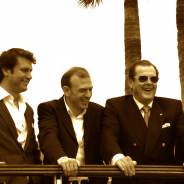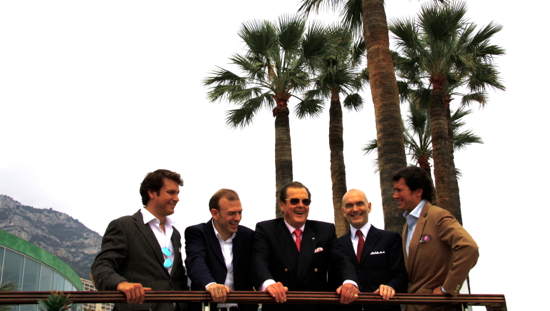MultiMediaFund

In the beginning of 2010 I got together with a fantastic group of very passionate and skilled people. We decided to explore establishing a fund which would focus on investing in blockbuster movies, music and other intellectual property rights, including game titles and books.
The project was chaired by Sir Roger Moore KBE.
Although there was a lot of interest in what we thought was a novel idea, and despite significant media coverage, the timing of the project was not the best, to say the least. At the time it proved incredibly difficult for us to raise capital to the level that was needed for the movie production side of the project.
Star One Media
At the end of 2010 we decided to rethink the project altogether. Christian and Geoffrey Moore went ahead and focused exclusively on the blockbuster movie production side of the business and established Star One Media Fund in association with Level 1 Entertainment, which is headed up by Bill Todman, Jr. – a very exciting opportunity indeed.
Nobody hates music
On my part I continued to be interested in the royalty side of the industry, particularly related to music, as I firmly believe that intellectual property rights will remain valuable and something that will be protected – even more so in the future.
I am also convinced that as technology evolves and copyright protection is further enforced throughout the world, artists and rights holders alike will enjoy a far more efficient and fair collection process and eventually create more value.
Paul McCartney
There are no two ways about it, people are passionate about music and it is a very big part of most people’s lives. In fact, as digital distribution grows there is a clear trend that more and more people are indeed willing to pay for content and thereby support their favorite artists. New delivery technologies may evolve into new types of performance or mechanical rights over time but the fact is that music is not going away anytime soon.
Performance royalties
This is the right to perform music in public. It is part of copyright law and demands payment to the composer/lyricist and publisher. Performances are considered “public” if they happen in a public place (including concerts, nightclubs, restaurants), and the audience is outside a circle of friends and family. Public performance also includes broadcast and cable television, radio, and any other transmitted performance of a live song, including but not limited to:
- a performance of a song or composition – live, recorded or broadcast
- a live performance by any musician
- a performance by any musician through a recording on physical media
- performance through the playing of recorded music
- music performed through the web (digital transmissions)
There are royalty collection societies all over the world, below I have listed some of the main US and global organizations:
- ASCAP
- BMI
- SESAC
- Sony Music
- SoundExchange
- Association of International Collective Management of Audiovisual Works (AGICOA)
- Bureau Int. des Sociétés Gérant les Droits D’Enregistrement et les Reproduction Mecanique (BIEM)
- Christian Copyright Licensing International (CCLI)
- International Confederation of Societies of Authors and Composers (CISAC)
- International Federation of the Phonogram Industry (IFPI)
- International Federation of Reproduction Rights Organisations (IFRRO)
- Motion Picture Licensing Corporation (MPLC)
- The Societies’ Council for the Collective Management of Performers’ Rights (SCAPR)
- Christian Video Licensing International
Mechanical royalties
- tape recordings
- music videos
- ringtones
- MIDI files
- downloaded tracks
- DVDs, VHS, UMDs
- computer games
- musical toys etc.
John Lennon
My pursuit continues and at the end of 2011 I finally took my first steps into the music royalty business.

